
Setif: The Pearl of the High Plateaus
Setif, a city nestled in the heart of Algeria, is a hidden gem waiting to be discovered by travelers. Known for its cooler climate and lush landscapes, Setif offers a refreshing escape from the heat of the coast. The city is rich in history, dating back to Roman times when it was known as Sitifis. Visitors can explore the ancient ruins of Djemila, a UNESCO World Heritage Site located just a short drive away. The well-preserved Roman city features impressive temples, basilicas, and triumphal arches that transport you back in time. The bustling city center of Setif is a blend of modernity and tradition. The Ain El Fouara Fountain, a symbol of the city, is a must-see. This charming fountain, adorned with a beautiful sculpture, is a popular gathering spot for both locals and tourists. Stroll along the vibrant streets and discover local markets where you can shop for traditional crafts, textiles, and delicious Algerian sweets. For nature enthusiasts, Setif offers a variety of outdoor activities. The nearby National Park of Belezma is perfect for hiking and enjoying the diverse flora and fauna of the region. During the winter months, the surrounding mountains are blanketed in snow, making it an ideal destination for skiing and snowboarding. Whether you're a history buff, a nature lover, or simply looking to experience authentic Algerian culture, Setif has something to offer every traveler.
Local tips in Setif
- Visit Djemila early in the morning to avoid crowds and enjoy the ancient ruins in peace.
- Dress in layers as the weather can change quickly, especially if you plan to explore the mountains.
- Try the local specialty, 'Makroud,' a delicious pastry filled with dates or almonds.
- Learn a few basic phrases in French or Arabic to help navigate local markets and interact with locals.
- Check the local calendar for cultural festivals; Setif hosts several throughout the year that highlight traditional music, dance, and crafts.
Setif: The Pearl of the High Plateaus
Setif, a city nestled in the heart of Algeria, is a hidden gem waiting to be discovered by travelers. Known for its cooler climate and lush landscapes, Setif offers a refreshing escape from the heat of the coast. The city is rich in history, dating back to Roman times when it was known as Sitifis. Visitors can explore the ancient ruins of Djemila, a UNESCO World Heritage Site located just a short drive away. The well-preserved Roman city features impressive temples, basilicas, and triumphal arches that transport you back in time. The bustling city center of Setif is a blend of modernity and tradition. The Ain El Fouara Fountain, a symbol of the city, is a must-see. This charming fountain, adorned with a beautiful sculpture, is a popular gathering spot for both locals and tourists. Stroll along the vibrant streets and discover local markets where you can shop for traditional crafts, textiles, and delicious Algerian sweets. For nature enthusiasts, Setif offers a variety of outdoor activities. The nearby National Park of Belezma is perfect for hiking and enjoying the diverse flora and fauna of the region. During the winter months, the surrounding mountains are blanketed in snow, making it an ideal destination for skiing and snowboarding. Whether you're a history buff, a nature lover, or simply looking to experience authentic Algerian culture, Setif has something to offer every traveler.
When is the best time to go to Setif?
Iconic landmarks you can’t miss
Ain El Fouara Fountain
Discover Sétif's iconic Ain El Fouara Fountain: a historic landmark, cultural symbol, and artistic masterpiece in the heart of the city.
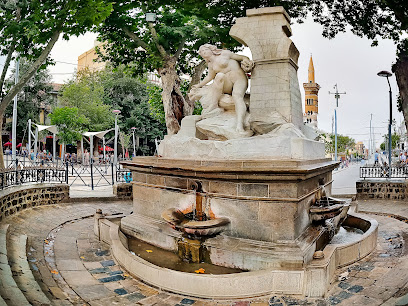
Park Attraction Setifis
Experience thrilling rides, beautiful scenery, and delicious food at Park Attraction Setifis, the ultimate amusement park in Setif, Algeria.
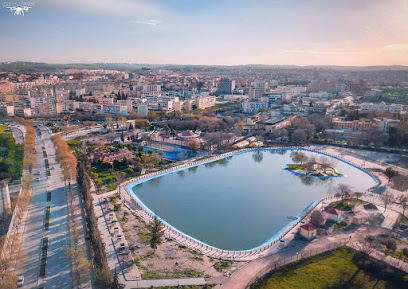
8 May 1945 Stadium
Home to ES Sétif, this 30,000-capacity stadium is a key sports and cultural landmark in Sétif, commemorating a pivotal moment in Algerian history.
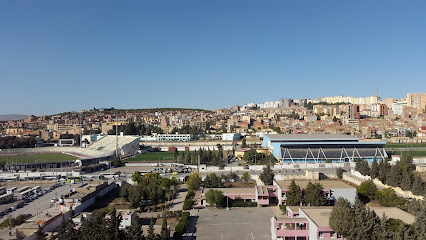
El Amir Abdelkader Garden
Discover tranquility and history at El Amir Abdelkader Garden in Sétif, a peaceful oasis in the city center perfect for a relaxing escape.
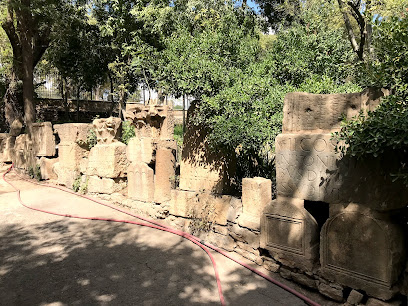
Mosque of Omar ibn al-Khattab
Discover the modern Islamic architecture and serene atmosphere of Setif's prominent Mosque of Omar ibn al-Khattab.
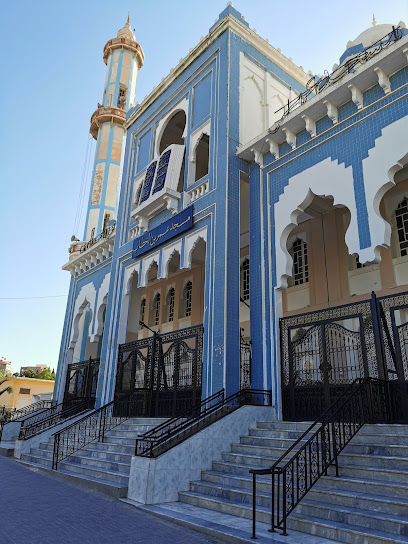
The ancient mosque
Discover Setif's oldest mosque, a unique blend of Ottoman and Byzantine architecture and a significant historical landmark.
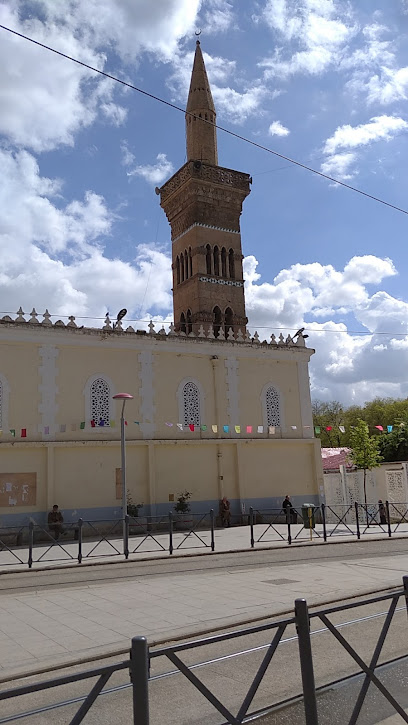
Ain El Fouara
Discover Ain El Fouara, Sétif's iconic fountain: a blend of history, art, and Algerian culture in a vibrant city center.
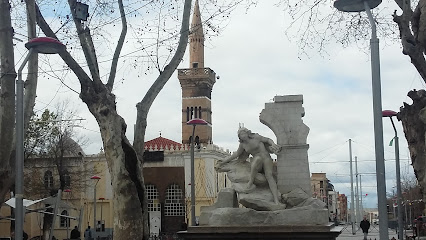
Archaeological Museum of Setif
Explore Algeria's ancient history through Roman mosaics, prehistoric tools, and fascinating artifacts at the Archaeological Museum of Setif.
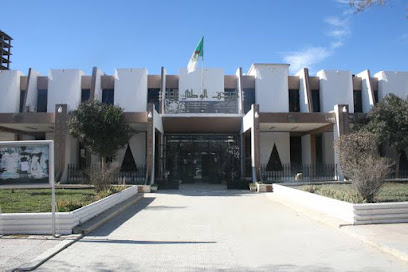
Byzantine Fortress
Explore the historic Byzantine Fortress in Setif, Algeria, offering panoramic views and a glimpse into the region's strategic past.
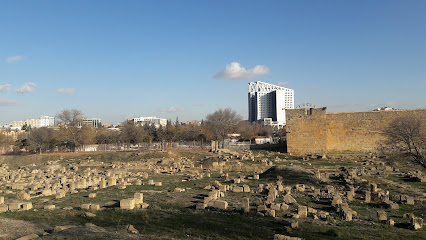
تمثال عين الفوارة
Discover the iconic and controversial Ain El Fouara statue, a symbol of Setif, Algeria, blending art, history, and cultural debate.
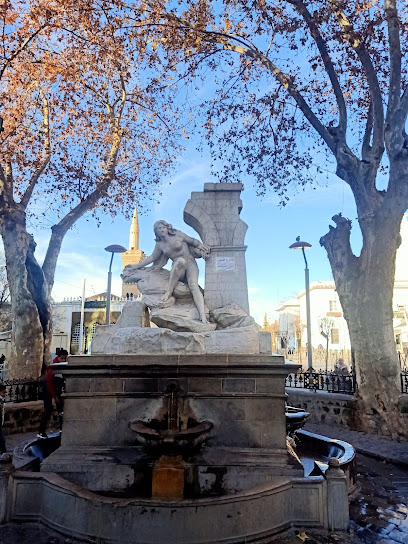
Makam chahid
A poignant monument in Setif, Algeria, honoring the martyrs of the Algerian Revolution and offering panoramic city views.
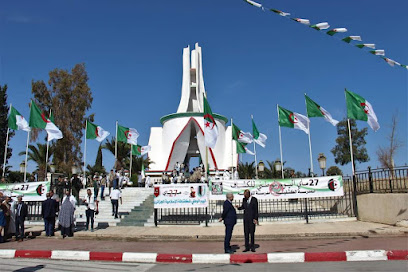
مسجد
مسجد سطيف: تحفة معمارية تجمع بين الأصالة والتاريخ، ورمز ديني بارز في قلب مدينة سطيف الجزائرية.
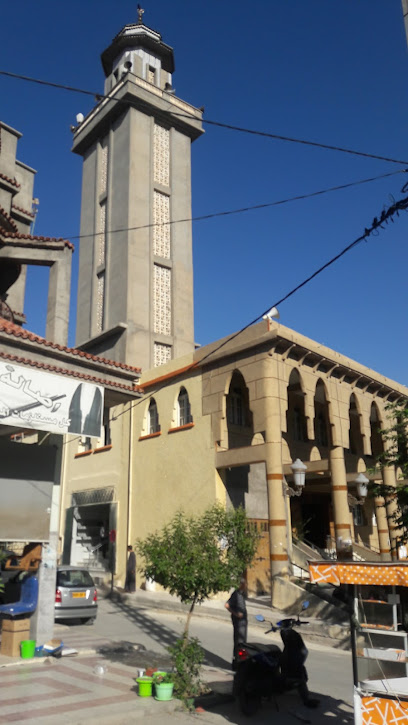
Roman ruins
Discover Algeria's ancient Roman past in Setif: Explore ruins, mosaics, and historical treasures in this captivating archaeological site.
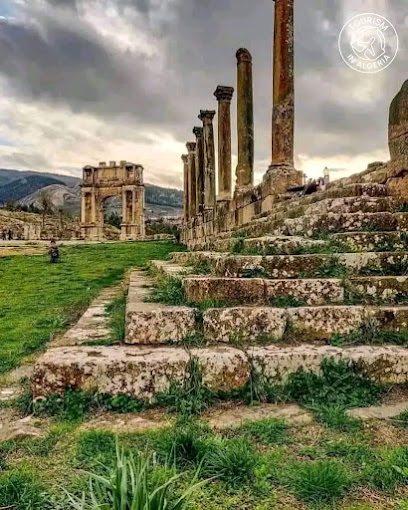
القطار التاريخي
Step back in time and discover Algeria's railway heritage at the Historical Train in Setif, a landmark connecting the past and present.
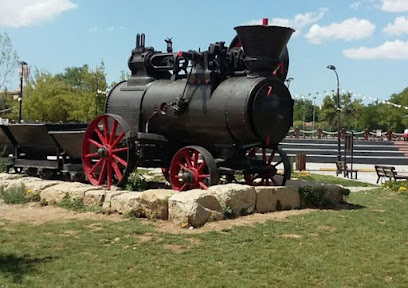
Direction du Tourisme et de l'Artisanat et du Travail Familial de setif
Explore Setif's cultural heart: Your guide to local attractions, artisan crafts, and historical sites in Algeria.

Unmissable attractions to see
Ain El Fouara Fountain
Discover the iconic Ain El Fouara Fountain in Setif, Algeria, a historic landmark and symbol of the city, attracting visitors with its beauty and cultural significance.
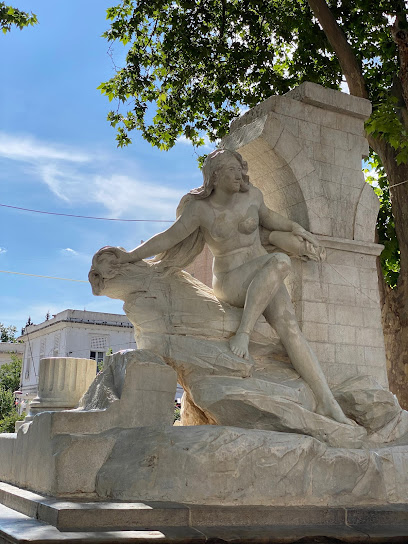
Park Attraction Setifis
Experience fun and nature at Park Attraction Setifis, Setif's premier amusement park with rides, gardens, and a small zoo for a memorable family day.
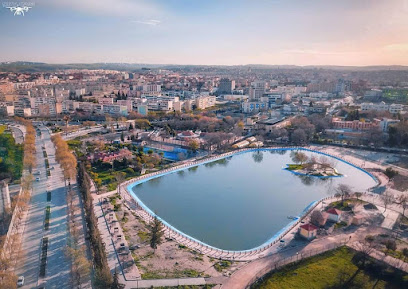
Archaeological Museum of Djmila
Discover Roman civilization in North Africa at the Archaeological Museum of Djmila, home to stunning mosaics and ancient artifacts.
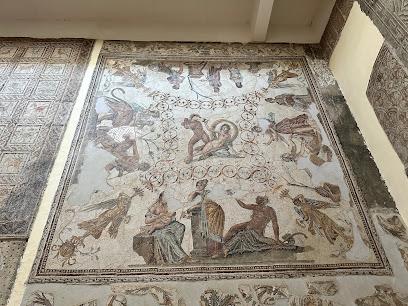
The ancient mosque
Discover Setif's oldest mosque, a unique blend of Ottoman and Byzantine architecture, offering a serene and culturally enriching experience.
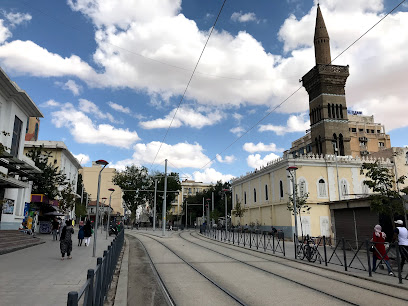
Archaeological Museum of Setif
Explore Algeria's ancient history at the Archaeological Museum of Setif, home to Roman mosaics, sculptures, and artifacts from prehistoric times to the Islamic period.
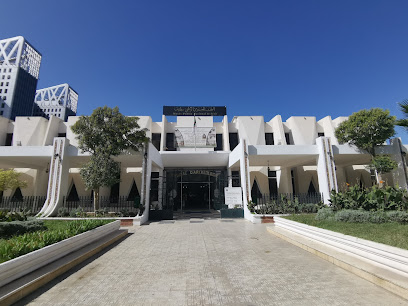
Byzantine Fortress
Explore the historical Byzantine Fortress in Setif, Algeria, offering panoramic views and a glimpse into the city's layered past.
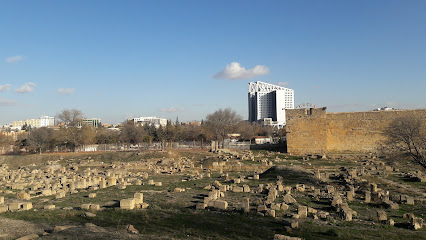
تمثال عين الفوارة
Discover the iconic Ain El Fouara Fountain in Sétif, a symbol of art, history, and controversy in the heart of Algeria.
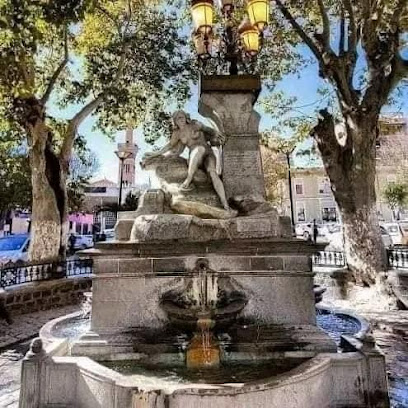
Makam chahid
Explore Makam Chahid in Setif, a historical monument honoring Algeria's independence with stunning architecture and peaceful gardens.
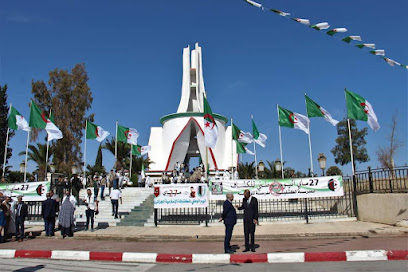
حديقة العرائس
Escape to the tranquility of حديقة العرائس in Setif, a perfect green retreat for relaxation, family outings, and enjoying nature's beauty.
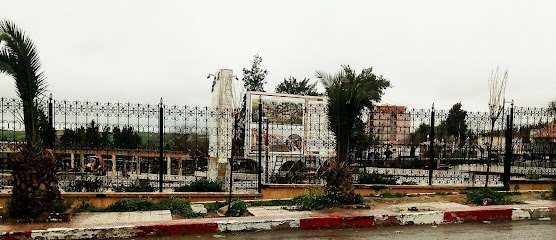
Roman ruins
Uncover the ancient wonders of Setif's Roman past, exploring temples, mosaics, and the echoes of a once-thriving Roman city.
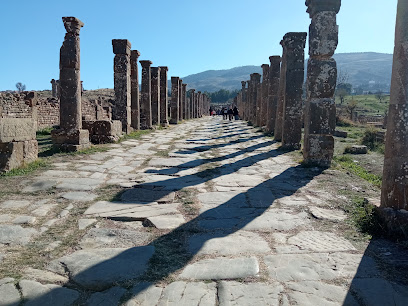
ارجوحة السفينة
Experience thrilling rides and family fun at Arjouha Al-Safina, Setif's premier theme park, offering lasting memories for all ages.
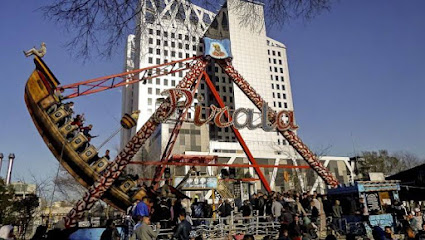
The Wheel of Setif
Experience fun and adventure at The Wheel of Setif, a vibrant theme park offering a variety of rides and entertainment for the whole family in Algeria.
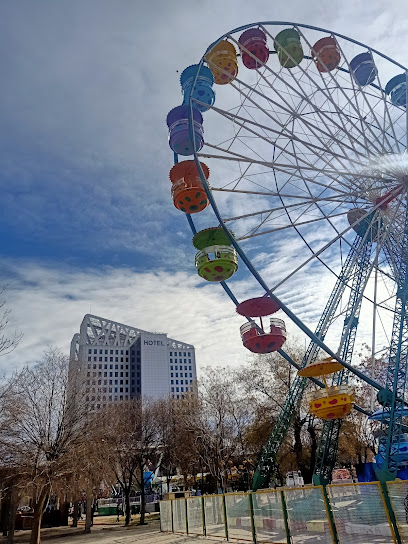
Essential places to dine
Restaurant the Syrian citadel
Savor authentic Syrian cuisine in Setif's vibrant atmosphere - a must-visit for food lovers!
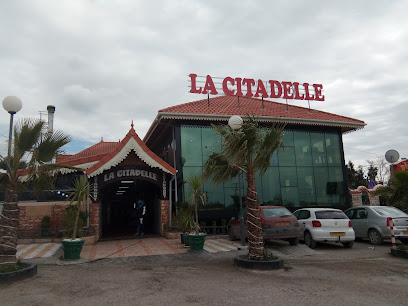
Restaurant Bab El-Hara (Officiel)
Experience authentic Syrian flavors at Restaurant Bab El-Hara in Setif - a culinary gem that delights every palate.
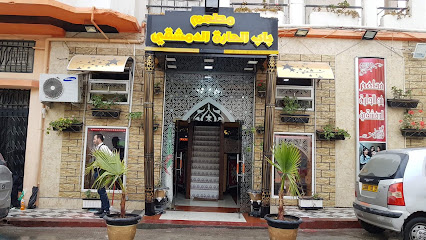
PIZZA PINO SETIF
Discover the rich flavors of Italy at Pizza Pino Setif – where every slice tells a story of tradition and taste.
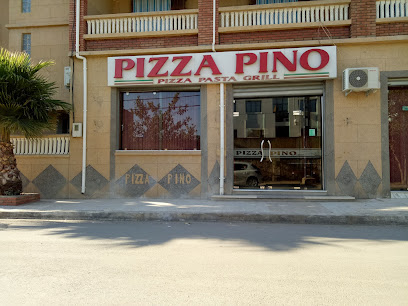
l'hacienda resturant
Discover authentic Turkish flavors at L'Hacienda in Setif - where every meal is a celebration of culinary tradition.
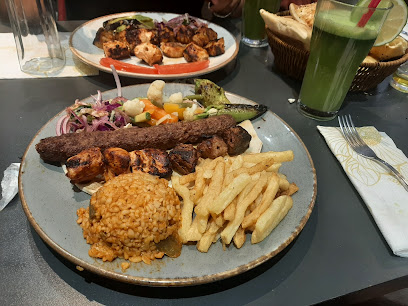
Restaurant Marina Setif
Discover authentic Algerian cuisine at Restaurant Marina Setif - where every dish is a celebration of local flavors.
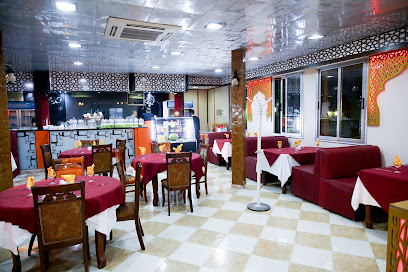
Naturalia Setif
Discover the flavors of Algeria at Naturalia Setif - where culinary tradition meets modern dining.
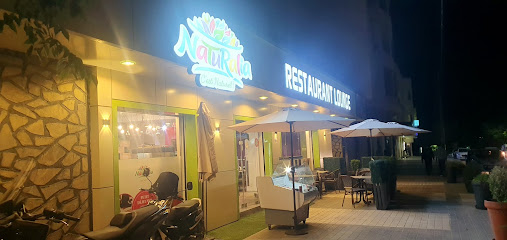
خيمة أولاد نايل - مأكولات تقليدية.
Savor authentic Algerian cuisine at خيمة أولاد نايل - a delightful dining experience in Setif.
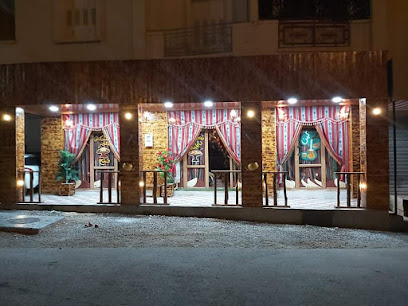
Restaurant La Hotte
Experience the flavors of Algeria at Restaurant La Hotte in Setif - a must-visit culinary destination for every traveler.
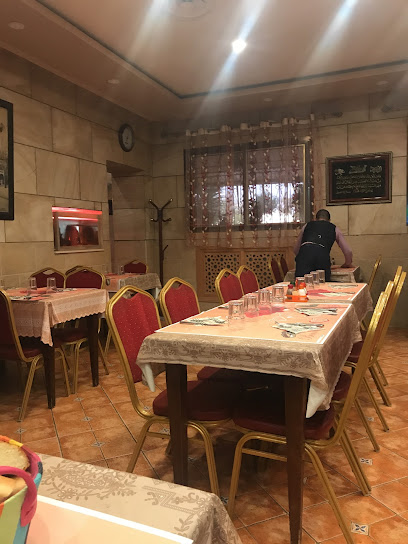
L'Asiatico
Discover the vibrant flavors of Asia at L'Asiatico in Setif - where every dish is a delightful journey for your taste buds.
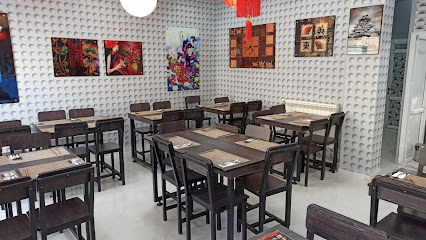
Maison de la Pizza
Discover authentic Italian flavors at Maison de la Pizza in Setif, where every slice is crafted with passion and fresh ingredients.
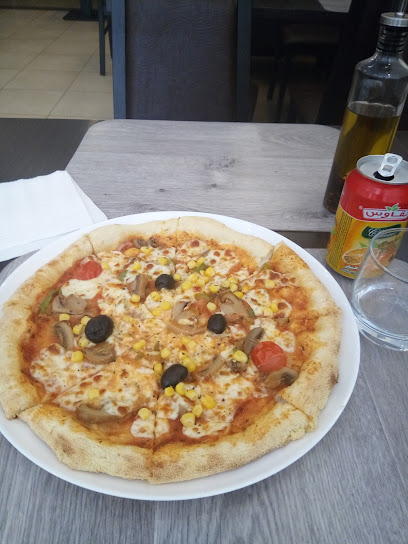
Restaurant La Colombe
Experience the essence of haute French cuisine at Restaurant La Colombe in Setif—where local flavors meet culinary artistry.
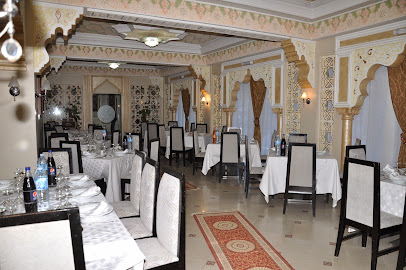
Coinkee
Discover the best pizza in Setif at Coinkee - where authentic flavors meet warm hospitality.
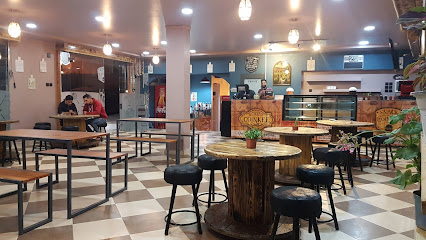
Le Serail Restaurant & Lounge
Discover the flavors of Algeria at Le Serail Restaurant & Lounge in Sétif—where tradition meets modern cuisine in an inviting atmosphere.
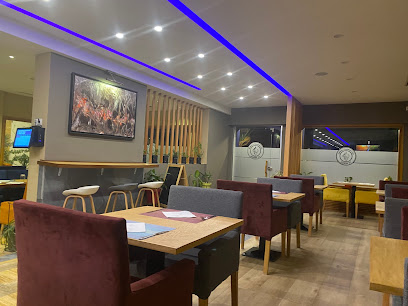
Restaurant Migusto
Discover the flavors of Algeria at Restaurant Migusto in Setif – where tradition meets taste in a cozy atmosphere.
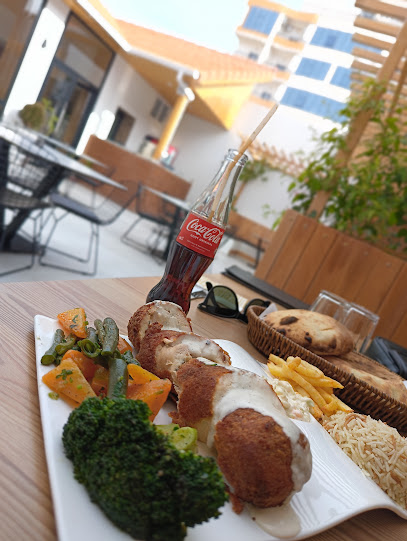
Restaurant La Mola
Experience authentic Algerian flavors at Restaurant La Mola in Sétif – where every meal is a journey through taste.
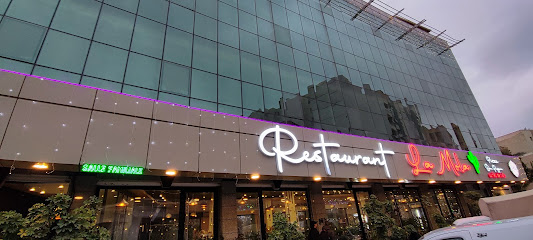
Markets, malls and hidden boutiques
Adidas Store Setif
Discover top-quality sportswear and equipment at the Adidas Store in Setif, where style meets performance for all athletes.
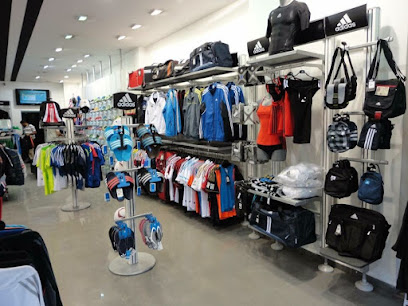
Bershka
Explore Bershka in Setif for trendy fashion accessories and stylish clothing, perfect for all fashion lovers visiting Algeria.
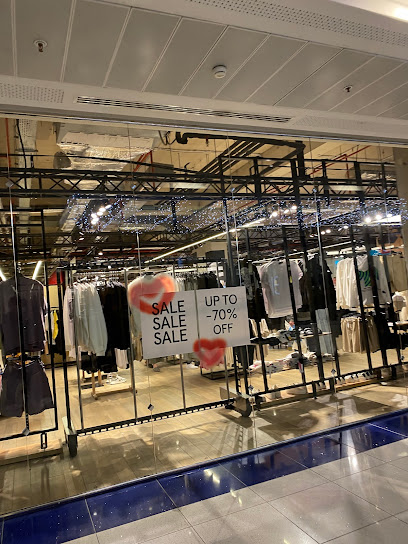
Lc Waikiki
Explore trendy fashion at Lc Waikiki in Setif's Park Mall, where style meets affordability for the savvy shopper.
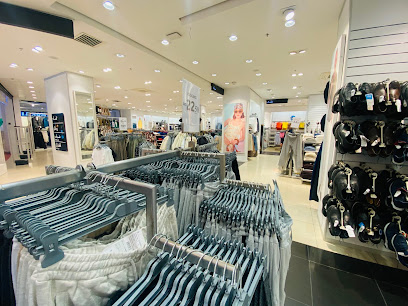
Boutique istanbul setif 1
Explore a curated collection of stylish clothing at Boutique Istanbul, Setif's premier destination for fashion enthusiasts.
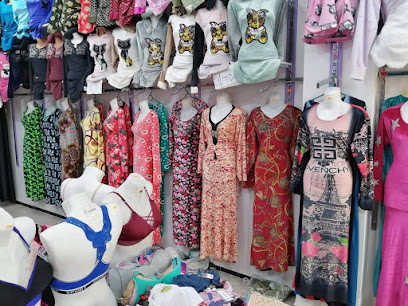
El Bahdja jewels & gift shop ( park mall four point by Sheraton)
Explore El Bahdja Jewels & Gift Shop in Setif for unique gifts and exquisite jewelry that reflect Algerian craftsmanship.
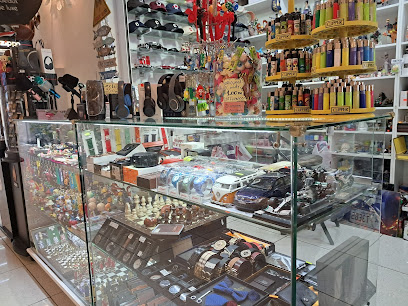
Eden Park
Discover the ultimate shopping experience at Eden Park, Setif's premier clothing boutique for men, women, and children.
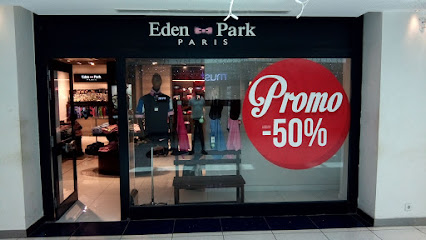
La Difference Boutique Setif
Explore La Difference Boutique Setif, the premier destination for exquisite home goods, unique decor, and memorable souvenirs in the heart of Algeria.
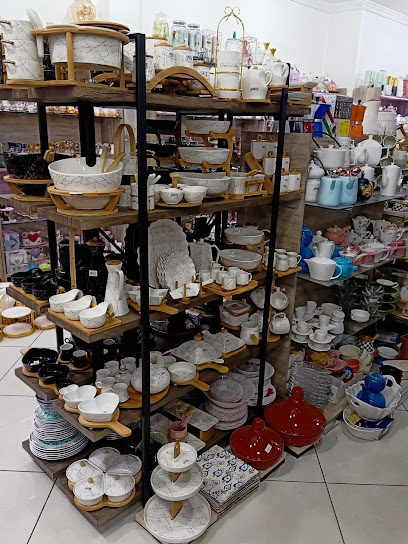
LE NOMADE
Explore style and sophistication at Le Nomade, the premier boutique for men's fashion and accessories in the heart of Sétif, Algeria.
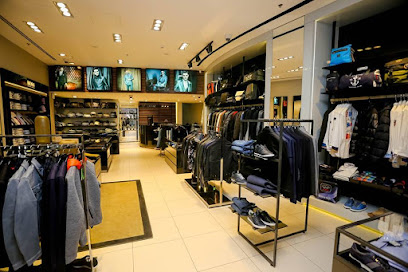
Prix Choc Sétif #BOOM
Explore the essence of men's fashion at Prix Choc Sétif, where style meets quality in the heart of Algeria.
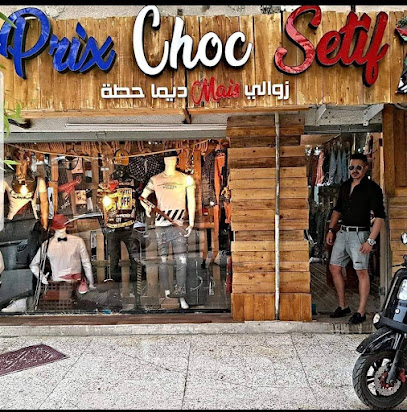
Boutique levis setif
Explore the stylish world of Boutique levis Setif, where contemporary fashion meets local flair in the heart of Algeria.
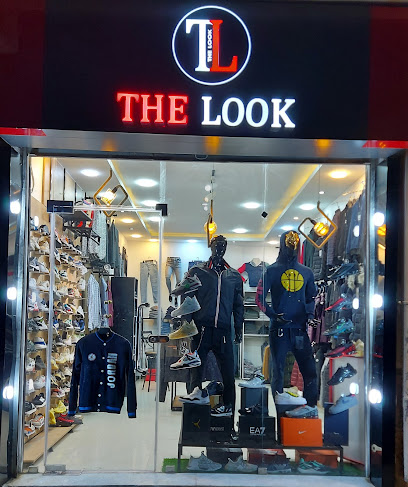
JACK&JONES
Explore contemporary menswear at JACK&JONES in Setif, where style and quality come together for the modern shopper.
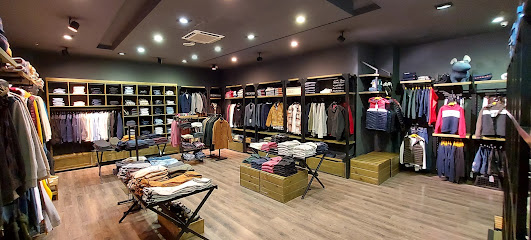
Boutique Paul&Shark Setif
Explore the elegance and sophistication of Boutique Paul&Shark in Setif, where luxury fashion meets personalized service.
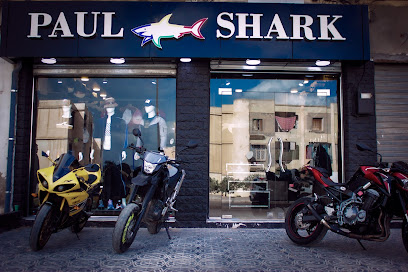
awani boutique sétif
Explore Awani Boutique Sétif for exquisite local gifts and crafts that embody the charm and culture of Algeria.
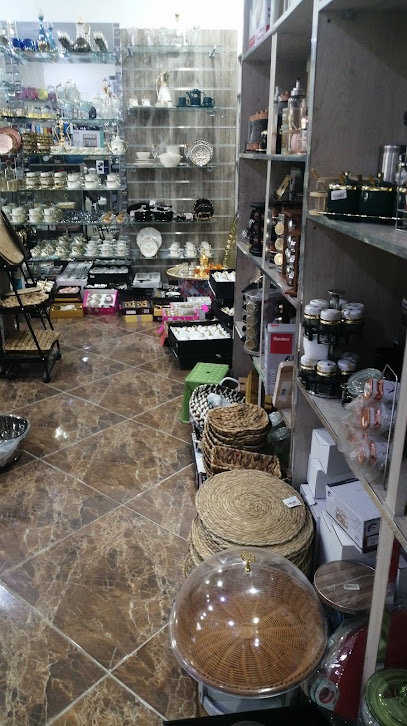
Setif shop
Discover the latest women's fashion at Setif Shop in Aïn Arnat, where style meets local charm and hospitality.
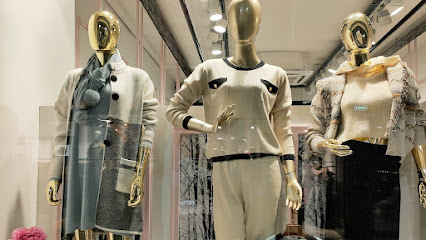
Queen-shop
Explore Queen-shop in Sétif for a unique blend of contemporary and traditional fashion that reflects the vibrant local culture.
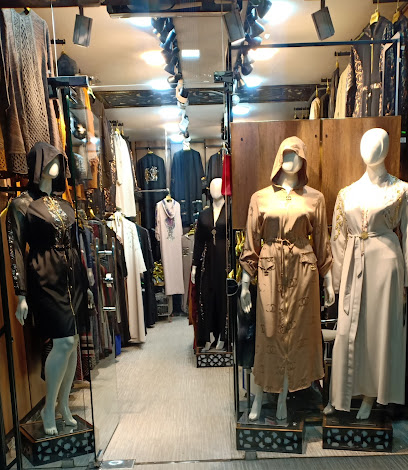
Essential bars & hidden hideouts
Naturalia Setif
Experience the flavors of Algeria at Naturalia Setif, where every meal is a celebration of local and international cuisine in a welcoming atmosphere.
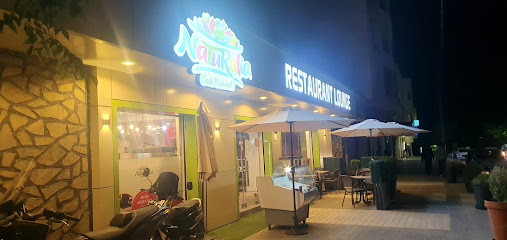
The Five Stars Coffee
Experience the authentic taste of pizza at The Five Stars Coffee in Setif, where delicious flavors meet a warm, inviting atmosphere.
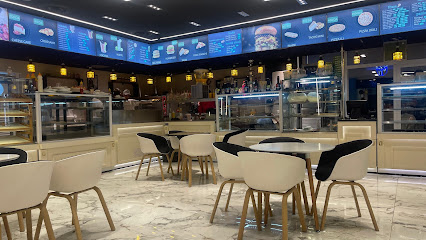
Le Serail Restaurant & Lounge
Experience the essence of Algerian cuisine at Le Serail Restaurant & Lounge, a must-visit culinary destination in Setif for food lovers and tea enthusiasts.
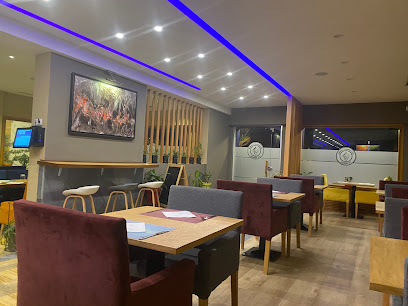
Downtown Lounge Setif
Discover the vibrant dining experience at Downtown Lounge Setif, where local flavors meet a relaxed ambiance for an unforgettable evening.

Fruit House
Experience the vibrant culinary scene of Setif at Fruit House, where fresh, local ingredients come together in an inviting atmosphere.
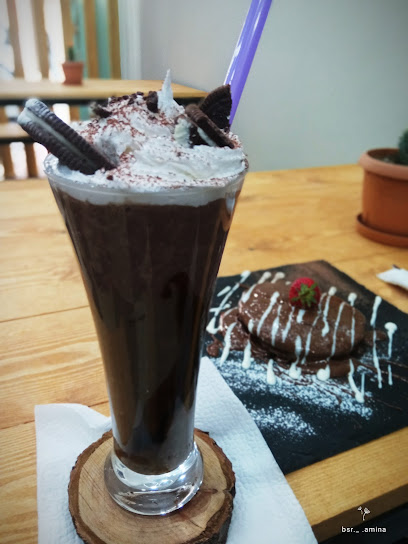
La Brise
Discover the culinary delights of La Brise in Setif, where local flavors meet international cuisine in a warm and inviting atmosphere.

Restaurant l'Univers
Experience the essence of Algerian cuisine at Restaurant l'Univers in Sétif, where flavor and tradition come together.
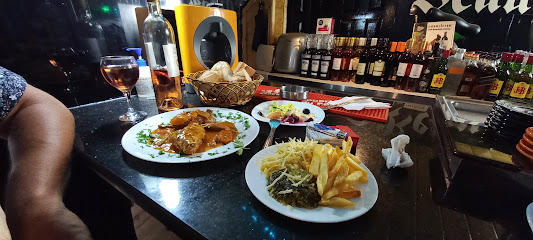
Restaurant Sétifien
Experience the essence of Algerian cuisine at Restaurant Sétifien, a charming bar and restaurant in Setif offering authentic flavors and warm hospitality.
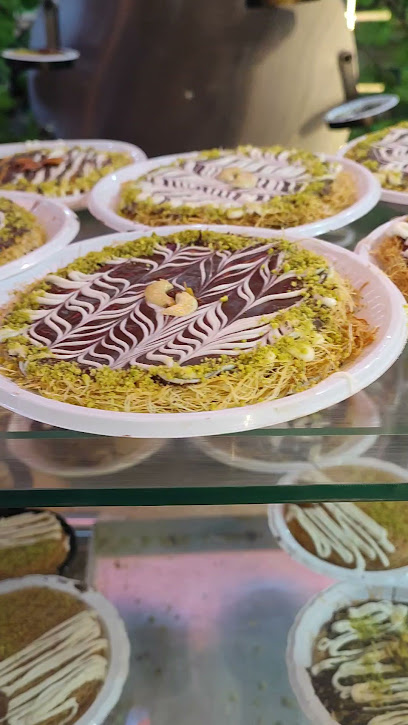
Chicha a setif
Discover the charm of Chicha a Setif, a cozy cafe in the heart of Setif, offering aromatic drinks and a warm atmosphere to relax and socialize.

Restaurant One
Discover the flavors of Setif at Restaurant One, where local and international cuisines meet in a charming atmosphere.
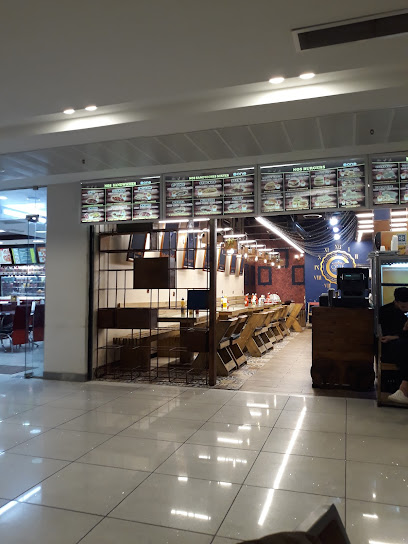
Ezakiat Lounge
Experience the rich flavors of Algeria at Ezakiat Lounge, Setif's premier dining destination, where culinary tradition meets modern elegance.

Saide decoupe
Discover the lively Saide decoupe pub in Sétif, where local culture, drinks, and vibrant atmosphere come together for an unforgettable experience.

قبيلة زديوي الرخاس
Experience the vibrant atmosphere of قبيلة زديوي الرخاس, a lively bar in Setif, where local culture and great drinks come together.

عا
Discover the vibrant local bar culture in Setif, Algeria, where authentic flavors and warm hospitality await every visitor.

Local Phrases
-
- Helloمرحبا
[Marhaba] - Goodbyeوداعا
[Wada'an] - Yesنعم
[Naam] - Noلا
[La] - Please/You're welcomeمن فضلك
[Min fadlik] - Thank youشكرا
[Shukran] - Excuse me/Sorryعذرا
[Aathirana] - How are you?كيف حالك؟
[Kayfa halak?] - Fine. And you?بخير. وأنت؟
[Bekheir. Wa anta?] - Do you speak English?هل تتحدث الانجليزية؟
[Hal tatahadath al'inglizia?] - I don't understandأنا لا أفهم
[Ana la afham]
- Helloمرحبا
-
- I'd like to see the menu, pleaseأريد أن أرى القائمة، من فضلك
[Aridu an ara alqaimah, min fadlik] - I don't eat meatأنا لا آكل اللحم
[Ana la aakul allahm] - Cheers!في صحتك!
[Fi sahtik!] - I would like to pay, pleaseأريد أن أدفع، من فضلك
[Aridu an adfa', min fadlik]
- I'd like to see the menu, pleaseأريد أن أرى القائمة، من فضلك
-
- Help!النجدة!
[Annajdah!] - Go away!انصرف!
[Ansurif!] - Call the Police!اتصل بالشرطة!
[Ittasal bialshurta!] - Call a doctor!اتصل بالطبيب!
[Ittasal bialtabib!] - I'm lostلقد ضللت الطريق
[Laqad dalalt altariq] - I'm illأنا مريض
[Ana mareed]
- Help!النجدة!
-
- I'd like to buy...أريد أن أشتري...
[Aridu an ashtari...] - I'm just lookingأنا فقط أتصفح
[Ana faqat atasafah] - How much is it?كم هذا؟
[Kam hatha?] - That's too expensiveهذا غالي جدا
[Hatha ghali jiddan] - Can you lower the price?هل يمكنك خفض السعر؟
[Hal yumkinuka khafdh alsu'r?]
- I'd like to buy...أريد أن أشتري...
-
- What time is it?كم الساعة؟
[Kam alsaa'ah?] - It's one o'clockالواحدة
[Alwahidah] - Half past (10)العاشرة والنصف
[Al'ashirah walnusf] - Morningالصباح
[Assabah] - Afternoonالعصر
[Al'asr] - Eveningالمساء
[Almasa'] - Yesterdayالبارحة
[Albarihah] - Todayاليوم
[Alyawm] - Tomorrowغدا
[Ghadan] - 1واحد
[Wahid] - 2اثنان
[Ithnan] - 3ثلاثة
[Thalathah] - 4أربعة
[Arba'ah] - 5خمسة
[Khamsah] - 6ستة
[Sittah] - 7سبعة
[Sab'ah] - 8ثمانية
[Thamaniah] - 9تسعة
[Tis'ah] - 10عشرة
[Asharah]
- What time is it?كم الساعة؟
-
- Where's a/the...?أين ...؟
[Ayna ...?] - What's the address?ما هو العنوان؟
[Ma huwa al'anaan?] - Can you show me (on the map)?هل يمكنك أن تريني (على الخريطة)؟
[Hal yumkinuka an tureeni (ala alkhareetah)?] - When's the next (bus)?متى القادم (الحافلة)؟
[Mata alqadim (alhafilah)?] - A ticket (to ....)تذكرة (إلى ....)
[Tathkirat (ila ....)]
- Where's a/the...?أين ...؟
History of Setif
-
Setif, originally known as Sitifis, was founded by the Romans in 97 AD under the reign of Emperor Nerva. The city served as a military outpost and later developed into a major center of trade and agriculture. Its strategic location on the route between Carthage and Hippo Regius facilitated its growth and prosperity.
-
After the fall of the Western Roman Empire, Sitifis came under the control of the Vandals in the 5th century. The city witnessed a period of decline until it was recaptured by the Byzantine Empire in the 6th century. Under Byzantine rule, Sitifis experienced a resurgence, with the restoration of many Roman structures and the construction of new churches.
-
In the 7th century, the Islamic conquest of North Africa reached Sitifis, marking the beginning of a new era. The city was renamed Setif and became an important center of Islamic learning and culture. During the medieval period, Setif was part of the Zirid and Hammadid dynasties, which contributed to the city’s architectural and cultural development.
-
Setif fell under French colonial rule in 1838, following the French invasion of Algeria. The city was modernized with European-style buildings, roads, and infrastructure. However, French rule was also marked by tension and resistance from the local population, culminating in the Setif Uprising of 1945, a significant event in Algeria's struggle for independence.
-
On May 8, 1945, the city of Setif became the epicenter of a major uprising against French colonial rule. The protests, which began as a celebration of the end of World War II, quickly turned violent. French authorities responded with brutal force, resulting in the deaths of thousands of Algerians. This event is considered a turning point in Algeria’s fight for independence, which was eventually achieved in 1962.
-
Today, Setif is a bustling city that blends its rich historical heritage with modern development. The city is known for its vibrant markets, cultural festivals, and historical sites such as the ancient Roman ruins, the Byzantine fortifications, and the Setif Museum, which houses artifacts from various periods of the city's history. Setif also serves as a commercial and educational hub in northeastern Algeria.
Setif Essentials
-
Setif is located in northeastern Algeria. The nearest international airport is Houari Boumediene Airport in Algiers, approximately 270 kilometers away. From Algiers, you can take a domestic flight to Setif Airport (Ain Arnat Airport) or opt for a train or bus service, which typically takes around 4 to 5 hours by road. Trains offer a scenic route through the Algerian countryside, while buses provide a cost-effective option.
-
Setif has a variety of transportation options. Taxis are readily available and are a convenient way to get around the city. For public transportation, buses and minibuses (locally known as 'trams') operate within Setif and connect it to neighboring towns and villages. Car rentals are also available for those who prefer to explore at their own pace. Walking is a great way to see the city center and its main attractions.
-
The official currency in Algeria is the Algerian Dinar (DZD). Credit cards are accepted in some hotels, restaurants, and larger shops, but it is advisable to carry cash, especially when visiting smaller establishments and markets. ATMs are available throughout Setif, but it's wise to withdraw sufficient cash beforehand for convenience.
-
Setif is generally a safe city for tourists. However, it's important to exercise standard precautions. Avoid walking alone at night in unfamiliar areas and keep an eye on your belongings in crowded places. Be cautious in the southern outskirts of the city, as these areas can have higher crime rates. Always stay vigilant and aware of your surroundings.
-
In case of emergency, dial 14 for police assistance or 17 for medical emergencies. Setif has local police stations and medical facilities available. It is recommended to have travel insurance that covers medical emergencies. Pharmacies in Setif can provide over-the-counter medications for minor health issues.
-
Fashion: Do dress modestly, especially when visiting religious sites. Avoid wearing revealing clothing. Religion: Do respect local customs and traditions. Always cover your head when entering mosques. Public Transport: Do be respectful and give up your seat to elderly passengers. Don’t eat or drink on public transport. Greetings: Do greet people with a handshake and use right hand or both hands. Eating & Drinking: Do try local delicacies and accept food offerings graciously. Don’t refuse hospitality, as it is considered impolite.
-
To experience Setif like a local, visit the local markets where you can buy fresh produce and traditional Algerian goods. Engage with locals, who are often friendly and willing to share stories about the city's history and culture. Don't miss visiting the Setif Archaeological Museum and the Roman ruins of Djemila, a UNESCO World Heritage Site. For a unique experience, take a stroll in Ain El Fouara Fountain, a popular local gathering spot.
Trending Landmark in Setif
-
Ain El Fouara Fountain
-
Park Attraction Setifis
-
8 May 1945 Stadium
-
El Amir Abdelkader Garden
-
Mosque of Omar ibn al-Khattab
-
The ancient mosque
-
Ain El Fouara
-
Archaeological Museum of Setif
-
Byzantine Fortress
-
تمثال عين الفوارة
-
Makam chahid
-
مسجد
-
Roman ruins
-
القطار التاريخي
-
Direction du Tourisme et de l'Artisanat et du Travail Familial de setif
Nearby Cities to Setif
-
Things To Do in Bejaia
-
Things To Do in Constantine
-
Things To Do in Tizi Ouzou
-
Things To Do in Algiers
-
Things To Do in Annaba
-
Things To Do in Tozeur
-
Things To Do in Bizerte
-
Things To Do in Tunis
-
Things To Do in Palma de Mallorca
-
Things To Do in Hammamet
-
Things To Do in Sousse
-
Things To Do in Monastir
-
Things To Do in Sfax
-
Things To Do in Oran
-
Things To Do in Djerba










